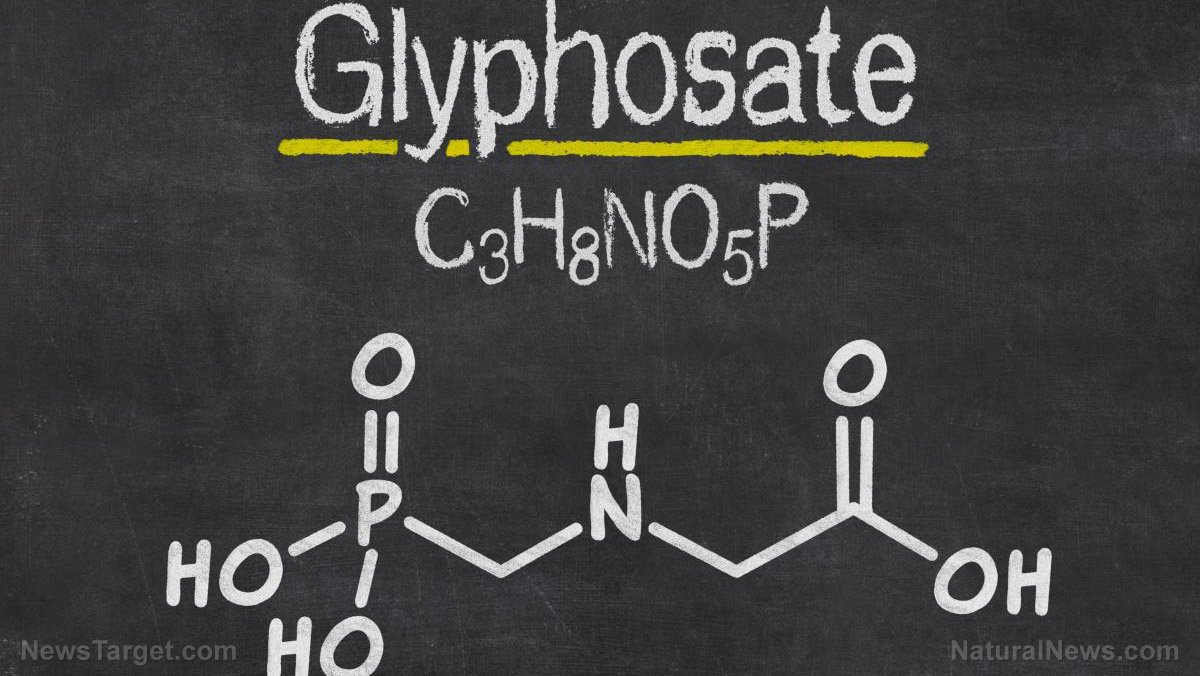Court orders EPA to reassess glyphosate’s impact on human health and the environment
06/22/2022 / By Mary Villareal

The Environmental Protection Agency (EPA) was ordered by the 9th Circuit Court of Appeals on Friday, June 17, to reassess whether glyphosate is potentially harmful to humans, wildlife or the environment.
Glyphosate is an active ingredient in Roundup, which is the most widely-used herbicide in the world. Bayer, which acquired the herbicide’s original producer Monsanto in 2018, is facing thousands of claims from people who said that their exposure to Roundup caused their cancer.
However, the herbicide will remain available for sale. According to an agency spokesman, EPA officials are reviewing the 54-page ruling and “will decide the next steps.” They also said that the Supreme Court is also considering whether to hear an appeal from Bayer that could shut down thousands of lawsuits on the cancer claims.
According to Bayer in a prepared statement, they are standing by the EPA’s earlier decision. “We believe that the U.S. EPA will continue to conclude, as it and other regulators have consistently concluded for more than four decades, that glyphosate-based herbicides can be used safely and are not carcinogenic,” the company said.
In a 3-0 decision, the federal appeals court ruled that the EPA did not adequately evaluate the potential impact of glyphosate on human health and endangered species when it reauthorized the use of the product in January 2020.
Judge Michelle Friedland, who wrote for the unanimous panel, said that the EPA’s finding of no risk to human health was not supported by substantial evidence. She also said the EPA fell short of its obligations under the Endangered Species Act by inadequately examining glyphosate’s impact on animal species and vegetation.

She noted that legal critics said the EPA “shirked its duties under the Endangered Species Act” and that the members of the three-person panel “agree and remand to the agency for further consideration.”
The Center for Food Safety, one of the groups that challenged the decision, called the ruling “a historic victory for farm workers and the environment,” adding that the decision gives voice to those who suffer from non-Hodgkin’s lymphoma, which is often associated with glyphosate. (Related: The Monsanto 71 – Sellout senators shame themselves by siding with Monsanto on GMO labeling bill.)
The Supreme Court is also expected to decide soon whether to hear the company’s appeal to a $25 million damages award for Edwin Hardeman, who blamed his cancer on herbicides that contain glyphosate.
Last year, Bayer set aside $4.5 billion to deal with the claims that glyphosate is causing non-Hodgkin’s lymphoma, and the company had already previously taken a charge of nearly $10 billion on earlier rounds of litigation.
“EPA’s failure to act on the science, as detailed in the litigation, has real-world adverse health consequences for farm workers, the public and ecosystems,” said Jay Feldman, who serves as executive director of Beyond Pesticides, a plaintiff in the case. “Because of this lawsuit, the agency’s obstruction of the regulatory process will not be allowed to stand.”
EPA says it found no evidence of cancer risk from glyphosate
While the EPA said it has not found evidence of cancer risk from glyphosate, California and other states have listed it as a cancer risk and local governments across the country have restricted its use. The World Health Organization‘s International Agency for Research on Cancer also classified it as “probably carcinogenic.” (Related: Bayer published a children’s book ‘Toby and the Bees’ telling kids ‘not to worry’ about sick bees because Bayer makes a medicine that kills the mites.)
Bayer said in 2021 that it is removing glyphosate from the U.S. residential lawn-and-garden marketplace, effective next year. In a statement, the company said the EPA’s 2020 solution was based on a rigorous assessment of the extensive body of science, spanning more than 40 years.
The company also said glyphosate-based herbicides are among the most thoroughly studied products of their kind, which is why farmers around the world continue to rely on them for effective weed control and to minimize tillage farming practices. It also helps reduce greenhouse gas emissions, preserve more land for native habitats and provide enough food to meet the needs of a growing population worldwide.
The company indicated that they are committed to working with the Agency to minimize the environmental impact of their products and the current product registrations remain in place for growers and other users to continue their use based on current label instructions.
Follow Glyphosate.news for more updates about how this weed killer could affect the health of humans.
Watch the video below to know more about the dangers of glysophate and specifically, RoundUp.
This video is from the Glyphosate & GMO Guy channel on Brighteon.com.
More related stories:
Bayer and BASF ordered to pay $265 million to Missouri peach farmer in dicamba weedkiller lawsuit.
Sources include:
Submit a correction >>
Tagged Under:
Bayer, Big AG, big government, cancer criminals, conspiracy, Ecology, environment, EPA, glyphosate, herbicides, Monsanto, non-Hodgkin lymphoma, Roundup, toxic chemicals, weed killer
This article may contain statements that reflect the opinion of the author



















